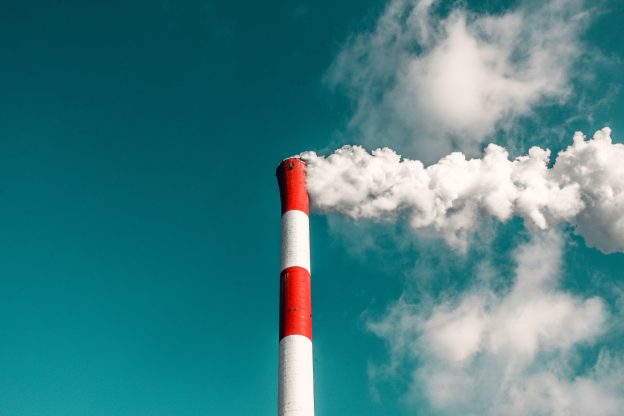A new study provides insight into the causes of poor air quality in the US and its effects on human health.
Conducted by researchers at the University of Minnesota, the study has found that air pollution from sources in the United States leads to 100,000 deaths in the US each year. About half of these deaths are from burning fossil fuels, but the researchers also identified less obvious sources of lethal pollution. The researchers believe that by targeting specific emission sources, this could reduce the mortality across the country.
“People usually think of power plants and cars, but nowadays, livestock and wood stoves are as big a problem. It’s also our farms and our homes,” said Sumil Thakrar, a postdoctoral research associate in the Departments of Bioproducts and Biosystems Engineering and Applied Economics.
The researchers found that while some sectors of the economy, such as electricity production and transport, have reduced pollution amid government regulations, other sectors such as agriculture and residential buildings have received less attention.
For the study, the team analysed data from the Environmental Protection Agency on all pollution sources in the country, including their location and how much pollution they emit. Then, they used newly-developed computer models to determine where pollution travels and how it affects human health.
The researchers focused on one harmful pollutant: fine particulate matter, also known as PM2.5, which is commonly associated with heart attacks, strokes, lung cancer and other diseases.
In examining the data, the team found around half of all PM2.5 air pollution-related deaths are from burning fossil fuels, with the remaining largely from animal agriculture, dust from construction and roads, and burning wood for heating and cooking.
“Essentially we’re asking: ‘what’s killing people and how do we stop it?’” Thakrar explained. “The first step in reducing deaths is learning the impact of each and every emission source.”
In the US, air quality is largely regulated by the federal government, which sets maximum allowable levels of pollution in different areas. States and local governments are then charged with enforcing those limits. The researchers suggest regulators can improve this broad-brush approach by focusing instead on reducing emissions from specific sources.
“Targeting particularly damaging pollution sources is a more efficient, and likely more effective, way of regulating air quality,” said Jason Hill, a professor at the Department of Bioproducts and Biosystems Engineering.
“Think of springing a leak in your boat while out fishing. Why fret too much about how much water is coming in when what you really should be doing is plugging the hole?”
The researchers also found that as well as soot — such as the exhaust from a dirty bus — or road dust, PM2.5 also forms from other pollutants like ammonia which can have a detrimental impact on human health.
Ammonia is released from animal manure and the fertilisation of crops. But unlike many other sources of PM2.5, ammonia is not regulated to any large extent, despite being responsible for about 20,000 deaths, or one-fifth of all deaths caused by PM2.5 pollution from human activity, the researchers said.
To improve air quality in the future, the researchers suggest more drastic reductions of emissions from sources that are already regulated, such as electricity generation and passenger vehicles.
Furthermore, they suggest novel ways to target pollutant sources that have not been as extensively regulated, such as manure management, changing personal diets and improving formulations of cleaning supplies, paints and inks.
The researchers said this study — the underlying data and results of which are available to the public — can complement current efforts to mitigate climate change and other environmental problems.
“Our work provides key insights into the sources of damage caused by air pollution and suggests ways to reduce impacts,” Thakrar concluded. “We hope policymakers and the public will use this to improve the lives of Americans.”








